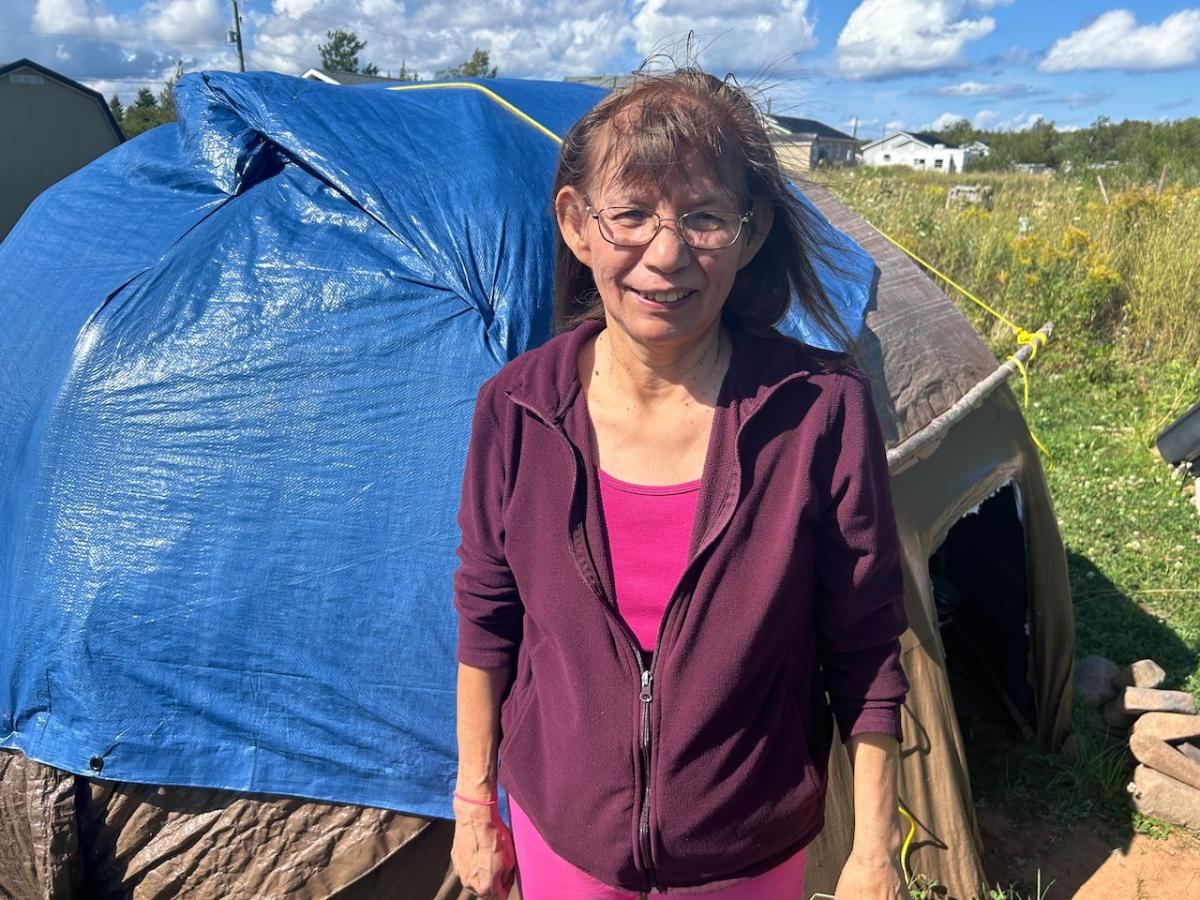Nestled in the corner of Margaret Labobe’s backyard on the Lennox Island First Nation is a round, tent-like structure covered in blue and brown tarps. A well-trampled dirt path in the grass leads to a small opening that you’d have to crouch down to enter.
It’s a Mi’kmaw sweat lodge. And while it might not look grandiose on the outside, what happens inside, Labobe said, is sacred.
“The sweat releases your thoughts or whatever you’re into… It will help you, you feel that comfort.”
Sweat lodges, long used by Indigenous people to release toxins and negative energy, have been part of a healing journey for Labobe, who has overcome many hardships in her 70 years on Mother Earth.
She was eight years old when she and her siblings were separated from their parents on P.E.I. and sent to a residential school in Nova Scotia. When the school closed in 1967 and they returned home, their parents — who had struggled with addictions — had separated. Labobe went to live with her father.
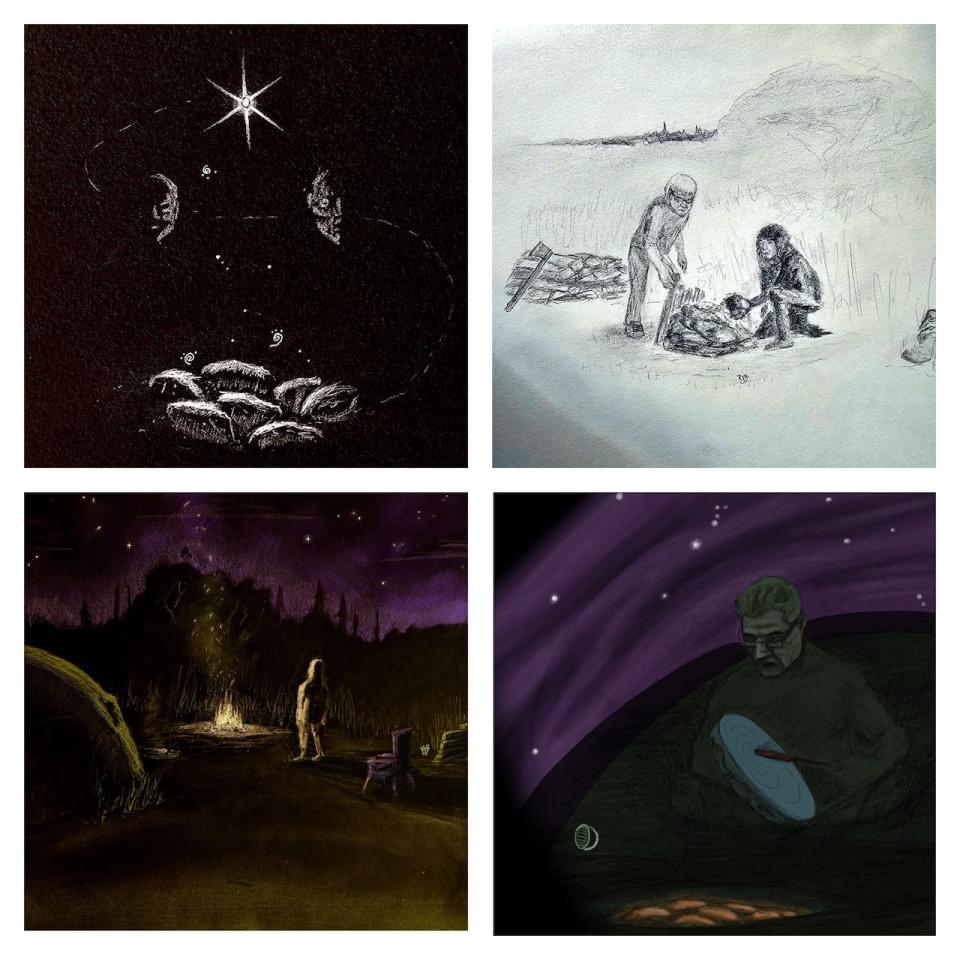
Illustrations by Mi’kmaw artist Riley Bernard show the process of a sweat lodge ceremony. No filming is allowed during the sacred ceremony. (Riley Bernard)
She said she felt isolated. She had her first of five children when she was 15. The first three were in and out of foster care as Labobe, who said she lacked parenting skills at the time, struggled to find support. She fell into relationships marred with alcoholism, violence and abuse.
“I wasn’t a very happy lady,” she said. “I was angry with the world.”
When Labobe moved back to Lennox Island from Charlottetown last February, she reached out to Junior Peter Paul of the Abegweit First Nation in Scotchfort and asked a favour: Would he build her a sweat lodge?
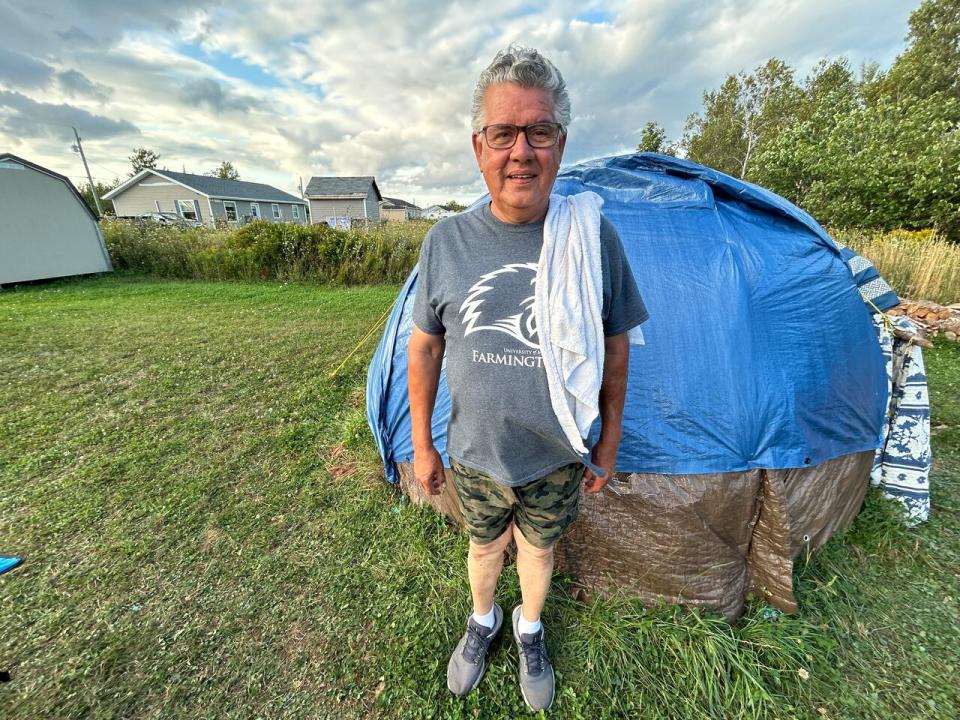

Mi’kmaw elder Junior Peter Paul builds sweat lodges and conducts ceremonies. (Laura Meader/CBC)
Peter Paul had been building the lodges and conducting the ceremonies for years.
He remembers only decades ago when these sorts of Mi’kmaw traditions had to be done in secret for fear of being harassed by government or even thrown in jail. Now they are open to anyone.
Of course he would build one for Labobe.
“I enjoy doing this for people. I love my ceremonies, it’s something that I really have to do, not only for myself, but for the people,” he said. “There’s people that rely on these sweat lodge ceremonies.”
The sweat lodge is heated by the steam from water poured over hot rocks, called “grandfathers” by the Mi’Kmaq. The rocks are heated in a fire outside the lodge, then brought inside and placed in a shallow pit.
Participants sit in a circle around the rocks. They pray and sing. Sometimes Peter Paul will encourage them to scream: “Say what you got to say, get it out of your system.”
I’ll tell them try to find that connection, release whatever is bothering you and feel it in your heart. — Junior Peter Paul
The whole ceremony lasts about three hours.
“I’ll tell them try to find that connection, release whatever is bothering you and feel it in your heart,” Peter Paul said.
“Use your heart. Let your heart do the thinking, not your brain, not your mind.”
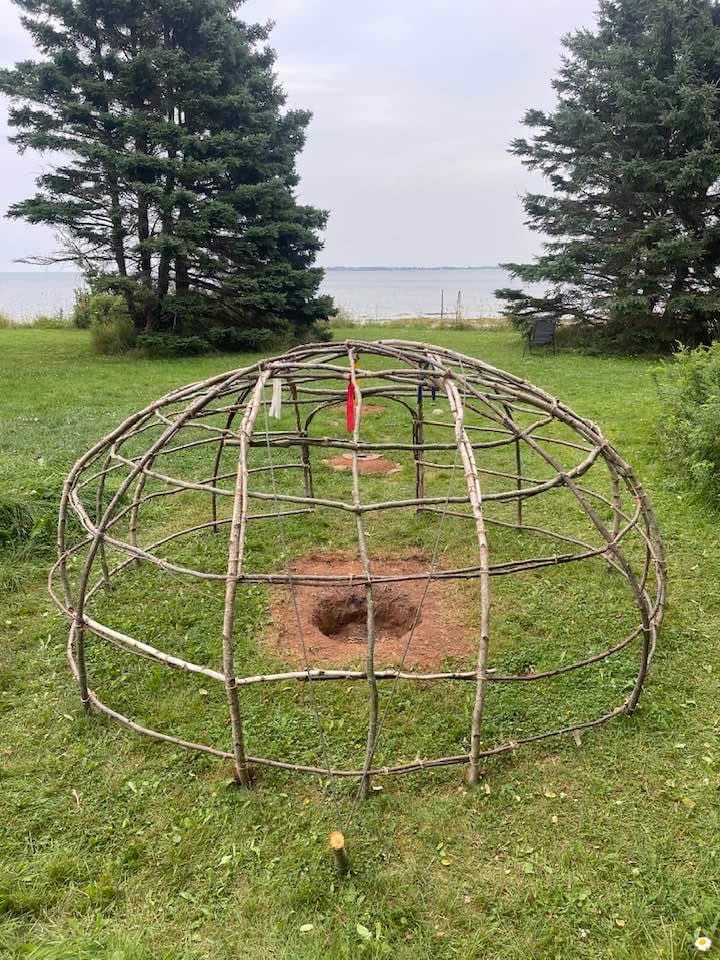

The sweat lodges are built using bent saplings to create a dome shape. A pit n the middle holds the hot rocks, or grandfathers, as they are called by the Mi’kmaq. (Junior Peter Paul)
It has worked for Labobe. She is sober and in a loving marriage with her husband, Rene Provencher.
Provencher said it’s a “miracle” Labobe has been able to turn her life around.
“When I first met her she was still involved with addictions, but the last, I’d say about 15 years, the change is like night and day.”
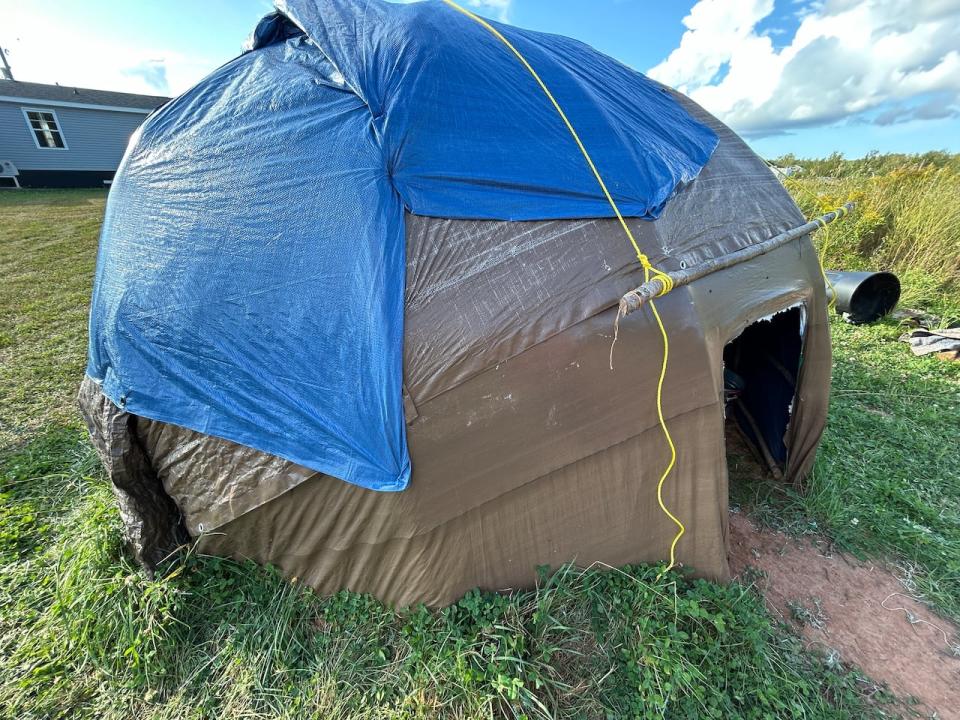

Labobe says everyone is welcome to use the sweat lodge in her backyard. (Laura Meader/CBC)
Now, she’s considered a pillar of the community.
“She was even voted elder of the year last year. We were only here a few months and that’s how strong the community felt about her,” Provencher said. “It’s incredible how active she is and involved in things in the community.”
Labobe said she is happy and has a good relationship with her family, which includes her five children, 12 grandchildren and seven great-grandchildren.
“What had happened in the past, it happened. So right now I’m just being being grateful that I’m alive, that I have my little sweat lodge back here. It’s like a second home.”
And the small entrance to the sacred, tarp-covered second home in her backyard is always open to anyone who needs it.
“Sometimes you see people uptight or sick … I would be glad to help them,” Labobe said.
“I would love to see more people coming to the sweats, as much as they want, I would love to see them come here.”
A national Indian Residential School Crisis Line has been set up to provide support for survivors and those affected. People can access emotional and crisis referral services by calling the 24-hour national crisis line: 1-866-925-4419.

